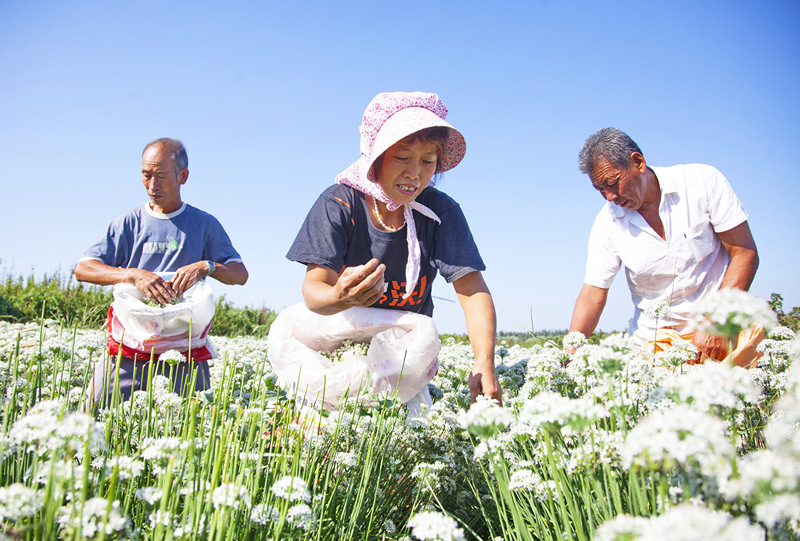Full coverage: China's reform and opening-up, 40 years on
By Tom McGregor, CCTV.com Panview commentator and end editor
Editor's note: 2018 marks the 40th anniversary of China's 'reform and opening up' that opened the doors for a more prosperous China that helped hundreds of millions of Chinese citizens escape poverty as the nation had enjoyed rapid economic growth and development. CCTV.com takes a closer look at Beijing's comprehensive reforms with a series of special reports focusing on various fields where tremendous changes have taken place ever since the introduction of the policy.

When the late Chinese leader Deng Xiaoping had announced the reform and opening up policy at the Third Plenary Session of the 11th Central Committee of the Communist Party of China (CPC) in December 1978, the Chinese government was seeking new solutions to help the nation and its citizens emerge out of impoverished conditions.
On a political level at the time, China stood united but hundreds of millions of Chinese were so poor, especially those living in the rural regions. The experiment to collectivize the agriculture sector nationwide had proven unsuccessful, so Deng introduced rural reforms that emphasized financial incentives for increasing crop and livestock production.
In other words, the farmer and individual household are rewarded more for surpassing quota levels, while using new crops and livestock-raising methods were strongly encouraged, since bigger production yields ensured higher incomes for rural villagers.
Let's be honest, the collectivization model of farming and ranching had failed, because it defied the impulses of human nature. All people have needs and wants, so they are more likely to work harder when they can take ownership of their possessions and get rewarded more for producing better results.
When a farmer can take responsibility over his own land he will take greater care of it than if it were communal property. His family's life and welfare depend on the success of his efforts.
Accordingly, let's take a closer look at the staged path of agricultural reforms that had led to emergence of China as an economic superpower in our current era.
"Responsibility System" for Farmers
An 18-year-old villager Yan Hongchang from Xiaogang in eastern Anhui province started a production group with 18 farmers signing an agreement. Xiaogang villagers launched privatization efforts, instead of continuing on with collectivist farms.
The farmers signed a household contract, known as the "responsibility system." They were required to each take charge of a tract of land, a little over half an acre in size. They were assigned a quota for crops or livestock raised and when meeting quota they sold their goods at fixed priced paid by the government.
But if they surpassed quotas, they could sell the surplus to open markets. The Xiaogang project was a success and within a few years the "responsibility system" had been implemented nationwide with an endorsement from Deng Xiaoping.
The "responsibility system" allowed farmers to produce at higher levels and they received greater compensation for that. Hence rural towns and townships had basked in greater prosperity. When farmers got richer, they would rent or purchase better farm equipment and tools, as well as pay more for better-quality seeds, fertilizer and animal feed.
Villagers could leave the farms and become entrepreneurs, known as "specialized households." The cycle of economic growth spread further. Farmers had more available cash on hand, shops could sell more goods, suppliers of farming equipment such as tractors could rent them out and of course, more food supply was readily available for all Chinese citizens.
Shifting to modernized farming
By 1984, farmers were no longer required to meet a quota system. Farmers had enjoyed more productivity by focusing on efficiency and logistics. They worked closely with village farmers to raise money to build better roads, so they can transport their crops and livestock to local markets.
Deng's agriculture reforms were transformational for China, because the nation had to boost crops and livestock yields in order to enter the next stage of the reform and opening up in the 1980s, when Beijing had striven to make China rich by boosting its manufacturing sector that had spurred a sharp rise in exports for decades to come.
Beijing had to embark on an ambitious urbanization plan, but it could have not succeeded unless farmers and ranchers could feed the nation and that's exactly what had occurred. Success breeds success.
Moving forward, we can anticipate Beijing to march ahead with even more rural reforms, since the nation's agriculture sector must stay strong for sustainable and balanced development for the entire Chinese economy.
(The opinions expressed here do not necessarily reflect the opinions of Panview or CCTV.com. )

Panview offers a new window of understanding the world as well as China through the views, opinions, and analysis of experts. We also welcome outside submissions, so feel free to send in your own editorials to "globalopinion@vip.cntv.cn" for consideration.
















